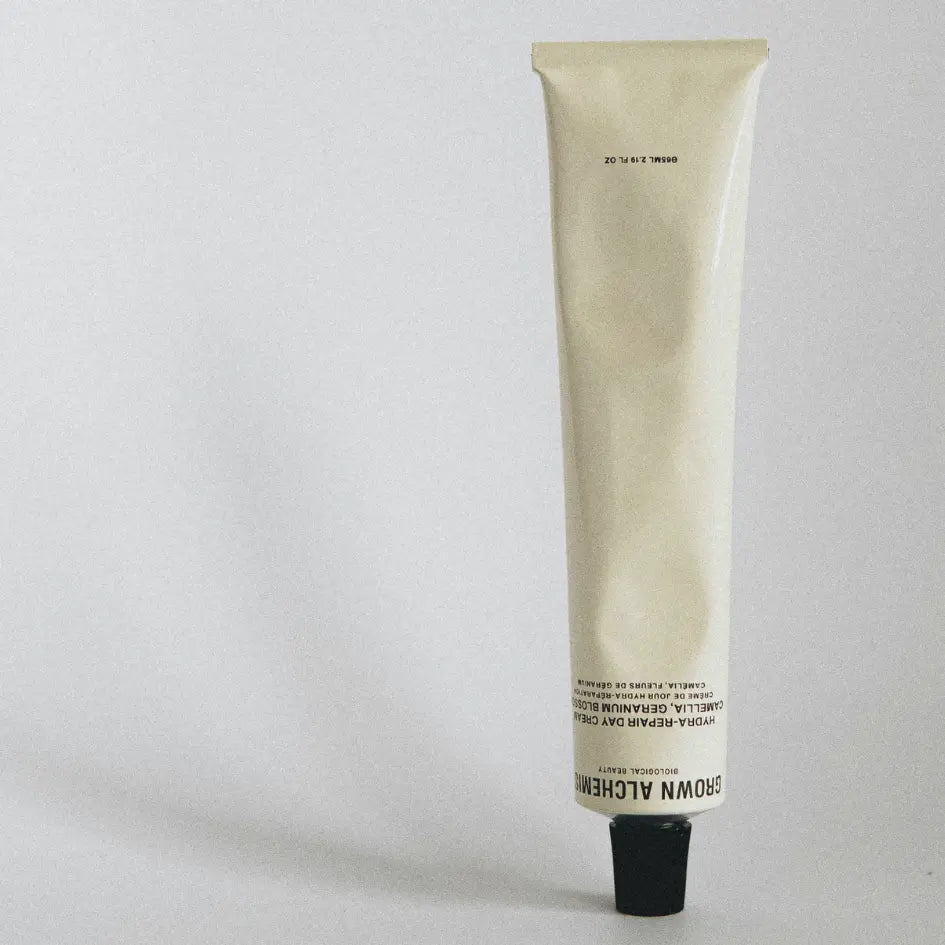Apoterra
Our ratings are based on a scale from 1 (Avoid) to 5 (Top Choice).
See how we rate.
The Shifting Gaia rating evaluates brands based on sustainable practices, ingredients and materials, and social responsibility, among others. Below are a few factors influencing this brand's score:
overview
about
Apoterra is a skincare brand specialized in botanically based products formulated with sustainably sourced, organic ingredients. Highlights
• Cruelty-free
• Plastic-negative certified
• Carbon-neutral
• Sustainable ingredient sourcing
• Small-batch production
• Woman-owned business
• One-tree planted
• Clean, non-toxic formulations
sustainability
details:
Packaging
Nearly all of Apoterra's packaging is recyclable glass or paper, with minimal plastic use. Products come in amber glass bottles or jars (a forever recyclable) with only the only plastic components being pumps and caps. No refill pouches are offered yet, but the brand mitigates plastic by shipping every order plastic-free (using paper-based shipping materials). Apoterra is also Certified Plastic Negative, meaning they remove 5 pounds of ocean-bound plastic for every 1 pound of plastic used. The company was also one of the original partners of PACT Collective, a non-profit dedicated to recycling beauty packaging and moving toward circularity.
Ingredient Sustainability
Apoterra relies almost exclusively on low-impact, plant-based ingredients. They explicitly avoid common unsustainable ingredients: e.g., no non-RSPO palm oil, no petroleum-derived silicones or mineral oils, and no synthetic palm-derived surfactants (their one emulsifier is plant-origin). The brand's policy of vetting each ingredient's origin (and even providing batch-level transparency to consumers) further corroborated their commitment to sustainable sourcing. Additionally, Apoterra sources from small farms, distilleries, and cooperatives whenever possible, which helps support sustainable farming practices and local economies.
Apoterra avoids endangered botanicals; for example, they do not use sandalwood, ginseng, or other at-risk herbs in their formulas, and they openly educate about choosing more sustainable botanical alternatives to such ingredients. Essential oils from plants that face overharvesting in the wild are certified organic, suggesting alternative, sustainable cultivation. The brand sources their honey and beeswax from local, sustainable beekeepers. The inclusion of Cupuaçu butter suggests support for Amazonian agroforestry and helps to economically value the standing forest. Apoterra uses organic shea*, likely sourced from women's co-ops.
Energy Use and Footprint
Apoterra actively measures and offsets its carbon footprint. In 2024, Apoterra's estimated emissions were ~14 metric tons CO₂, but through its tree-planting program (in partnership with Trees for the Future), it planted 40,651 trees – an estimated offset of ~71 metric tons CO₂, far exceeding its footprint. Every product sold leads to one tree planted.
Apoterra manufactures in-house at their Connecticut studio. While the brand hasn't publicly disclosed using on-site renewable energy, their local production in the U.S. (rather than outsourcing abroad) likely reduces transportation emissions. Also, many products are anhydrous (oil-based or solid), meaning the formulas aren't shipping large amounts of water. This makes products lighter and more compact, reducing shipping energy per use.
Waste Management
Because Apoterra handcrafts products in small batches, it avoids large-scale overproduction and the associated waste. Apoterra performs regular audits of stock, and any products nearing their shelf-life “that are still in good condition get donated to a local women's shelter.”
Water usage in production is minimal because many products are oil-based; for those that require water (like hydrosol mists or masks), formulas are developed to be self-preserving, reducing the need to flush preservatives or create hazardous wastewater.
Overall, Apoterra has implemented a near closed-loop system: minimal waste generation in production, proactive redistribution of any excess product, and robust programs to handle packaging after consumer use.
Business Model
Over its 10-year history, Apoterra has maintained an “evergreen” product line that it refines rather than rapidly expands. Apoterra's products tend to be multi-functional (e.g., the Vitamin C Balm can be used as moisturizer, eye cream, or even lip care). The concentrated formulas also last a long time in use, meaning fewer frequent repurchases. Overall, the brand encourages customers to “buy less, but better.”
non-toxic
details:
Apoterra Skincare adheres to the highest standards of non-toxicity. This means no parabens, no phthalates, no synthetic dyes or fragrances, no sulfates, no petrochemicals, and no known carcinogens or endocrine disruptors. Many of their products are 100% plant-based and organic, which generally correspond to low hazard ratings. For example, EWG's Skin Deep database would rate ingredients like chamomile, aloe, jojoba oil, etc., as 1 (lowest hazard). Even the lab-made additions Apoterra uses, such as CoQ10 and ascorbyl palmitate (a form of Vitamin C), are well-studied, non-toxic substances commonly rated low hazard.
The brand provides exceptional ingredient transparency (even disclosing hidden preservative systems or extraction methods, such as noting that their aloe extract is in powder form to avoid preservatives).
social responsibility
details:
As a small U.S.-based manufacturer, Apoterra must comply with U.S. labor laws (ensuring minimum wage, safe working conditions, etc.), and there have been no reports of labor issues. Apoterra carefully selects ingredient suppliers who uphold ethical labor and sourcing standards. They explicitly prioritize working with farmers and suppliers who are Fair Trade certified or follow fair practices. The use of RSPO Identity Preserved palm oil also has a social dimension: RSPO standards include labor rights (no child labor, fair conditions on plantations).
Apoterra is cruelty-free certified, predominantly vegan, and uses only ethically-sourced exceptions for animal byproducts.
Apoterra's community engagement is multifaceted and deeply ingrained: environmental partnerships (trees, Pact, rePurpose), charitable giving (shelter donations, nonprofit funding), consumer education, and industry leadership. The continuity and impact of these programs – some running for many years – show genuine commitment rather than one-off campaigns.



